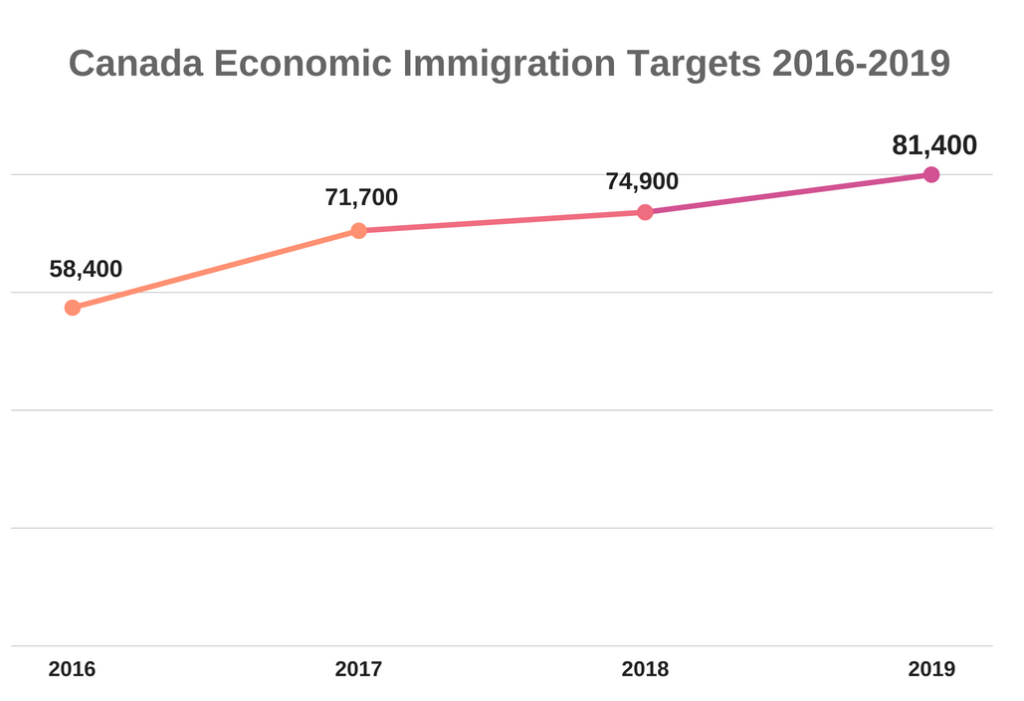What will the future of Express Entry look like?
Express Entry is attracting the high-skilled candidates it was built to attract but improvements to the skills it targets may be necessary, says the official in charge of Canada’s main economic immigration application system.
In a talk last week at the 2018 Canadian Immigration Summit, Patrick McEvenue, Director of Express Entry and Digital Policy with Immigration, Refugees and Citizenship Canada (IRCC), said his department will be undertaking an evaluation of Express Entry in the near future in order to understand both the system's impact along with its strengths and potential areas for improvement.
Express Entry working 'very well'
As is, McEvenue said the system is generally meeting the government’s expectations as to how Express Entry is meant to work, namely its ability to attract highly skilled candidates with the education, language proficiency and work experience necessary for “long term success” in Canada.
“Express Entry goes after the core group we’re after very well — the majority of people with traditional tech backgrounds, we can get those very well,” he said, noting there are now three times as many candidates with Science, Technology, Engineering and Mathematics (STEM) backgrounds in the Express Entry pool.
McEvenue also pointed to improvements such as an application processing time of six months or less, the system’s overall transparency and the evolving links between Express Entry and Canada’s Provincial Nominee Program, which the government wants to expand on.
To find out if you are eligible to enter the Express Entry pool, fill out a free assessment form.
Going Deeper into the Pool?
McEvenue said the Express Entry pool is healthy, and continues to grow. As of May 24, 2018, there were 83,111 candidates in the Express Entry pool.
Each Express Entry candidate is awarded a score based on so-called human capital factors including education, work experience, age and language proficiency. Additional points are also awarded for a provincial nomination, a Canadian job offer, Canadian studies, French proficiency and a sibling living in Canada.
Candidates who rank above a minimum "cut-off" score determined by the government are invited to apply for Canadian permanent residence in draws held roughly every two weeks.
“We have a lot of people to choose from. In fact, we’d like to go deeper into our pool. We know how talented the people are below the cut-off scores,” he said.
Larger immigration targets may also help IRCC go deeper into the pool. Canada is slated to welcome close to one million people over the next three years through its Multi-Year Levels immigration plan introduced last fall. Each year between 2018 and 2020 will see year-over-year admission increases for Canada's economic immigration programs, including a 20 per cent increase over the three years in the three managed by Express Entry — the Federal Skilled Worker Class, the Federal Skilled Trades Class and the Canadian Experience Class.
If these increased admission targets result in larger draws, it could have the effect of lowering the minimum scores in Express Entry draws.

Future Improvements to Express Entry and the CRS
Along with increased targets, future changes to the system may also help different candidates succeed.
A key focus of the upcoming Express Entry evaluation will be what McEvenue called “the changing nature of work” and how that could influence the kind of skills Express Entry’s Comprehensive Ranking System, or CRS, should be targeting.
“How is the changing nature of work changing the type of skills we should be going after and our approach to selection? We based the CRS on what worked in the past — it’s great, it’s based on the best evidence available, but are those the same things that will work in the future? It’s one of the major things we’ll be thinking about this next year in the lead up to our evaluation,” he said.
The evaluation will also consider who is currently succeeding under Express Entry and how the system can work better for “groups who are not benefiting yet from Express Entry who we want to see come to Canada,” he said.
How Express Entry can better engage Canadian employers and cater to their labour needs is another area of interest, he said.
McEvenue said the coming months will involve a more profound reflection on the role Express Entry will be required to play in the years ahead and the kind of questions the evaluation should be asking.
“What questions do we need to be asking ourselves this year so we can evaluate the Express Entry system in a way that is meaningful to the broader Canadian community and is going to help guide this government and subsequent governments,” he said. “Where are we going to take the system next?”
This news was welcomed by Attorney David Cohen, senior partner at the Campbell Cohen Canadian immigration law firm in Montreal.
“As the yearly Express Entry targets continue to grow, IRCC continues to learn from data and improve the system,” he said.
“We are looking forward to seeing where increased targets will take Express Entry, and very curious to see how changes may benefit some of the candidates who have not yet found success through it.”
To find out if you are eligible to enter the Express Entry pool,
fill out a free assessment form.
© 2018 CICNews All rights Reserved
- Do you need Canadian immigration assistance? Contact the Contact Cohen Immigration Law firm by completing our form
- Send us your feedback or your non-legal assistance questions by emailing us at media@canadavisa.com



